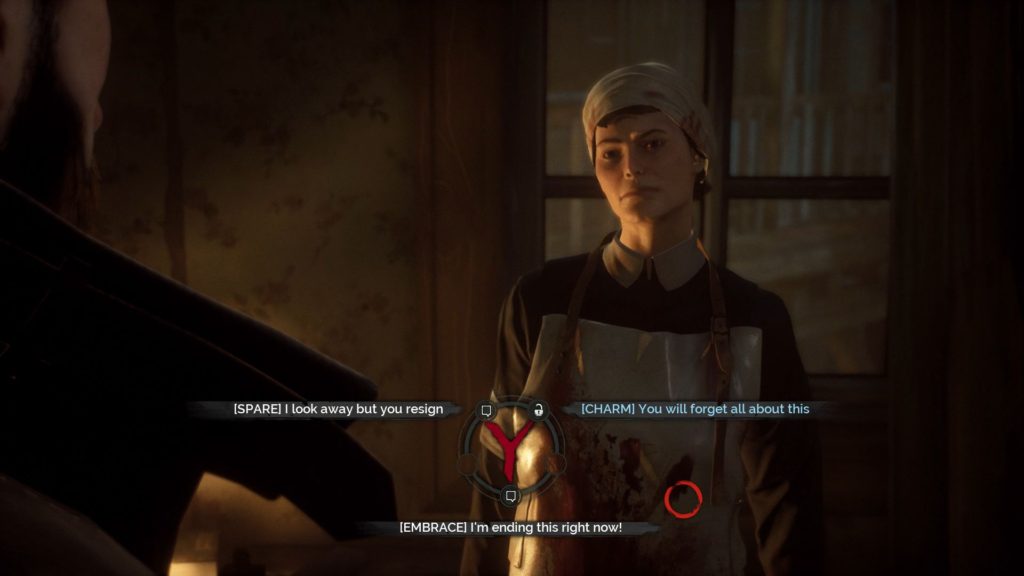To be a vampire, one of the immortal undead, is to see the world differently. Citizens that were once your peers are now something different, something lesser, sustenance. Awakening in the London docks newly turned Vampyr protagonist Dr Jonathan Reid awakens to find he has new strengths and abilities. The cost? A need to feed on the blood of those his Hippocratic oath swore him to protect.
Further complicating Dr Reid’s need for sustenance is that not all sources of blood provide the same degree of nourishment. Each non-player character you meet has an associated “Blood Quality”. This provides a direct indicator of how much XP you will gain should you feed on them; a fatal act. XP is used to acquire skills. These skills are exclusively combat related. Despite the focus on talking with non-player characters and discovering their secrets, combat is still the game’s primary system. By choosing to abstain from feeding on the blood of non-combatants player are ensuring that they are underleveled for the combat they will have to endure.

Though you can obtain XP from completing quests or defeating foes in combat this is only ever enough to sustain you at a point several levels below the enemies inhabiting a given borough. In order to match, or overpower, the enemies Dr Reid will face, players need the large XP gains available from feeding on non-player characters. Doing so will remove those characters from the world, rendering any side quests associated with them impossible to complete. Your choice of whether to give in to temptation or hold yourself to a moral code will have repercussions on the state of the world both in the moment and at the game’s conclusion.
Living in a city stricken by a particularly virulent strain of the Spanish flu the overall well being of the citizens of London is liable to change alongside the fortunes of their borough. If the flu spreads too much characters will grow ill, lowering their Blood Quality and thus the amount of XP you can obtain from feeding upon them. If you wish to harvest the greatest quality of XP from the citizens of London it behooves you to maintain the health, both mental and physical, of your flock. Conversely should you simply wish to increase the well being of a neighbourhood because it’s the “right” thing to do you will inevitably and repeatedly be presented with the increased worth of those living within that borough.

At certain points Dr Reid has the opportunity to “Embrace” others, turning them into a vampire. This can be a means of saving their life after some grievous injury or debilitating illness, or simply as a means of forestalling actions that could be of detriment to you. In order to Embrace another you must give of yourself, quite literally. To turn a non-player character into a vampire you need to spend several thousand XP. If you have been choosing to level up regularly you may not have the necessary quantity of XP available. This doesn’t prevent you Embracing another however. Actions you took when unaware of a choice don’t limit your ability to make that choice; if you do not have the required quantity of XP you will go into debt. In order to level up again you will need to pay off the difference between what you had and what it cost you before you’ll be able to spent any of the XP on yourself.
By tying XP so closely to blood Vampyr successful reinforces the notion that for a vampire blood is both power and sustenance. The strong commitment to this systemic model creates situations where players can’t help but see the citizens around them both as characters and walking sources of XP. In a different scenario this manner of objectification would be callous, here that’s entirely in keeping with the conceit of the protagonist as a vampire, of the temptation offered by the power of blood.
